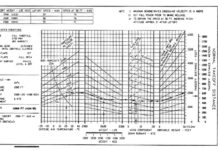As an air show performer or event organizer, you will frequently come across contracts that require you to designate entities or persons as an “additional insured.” This practice has become commonplace, and insurance carriers typically offer to name others as additional insureds, without increasing premiums. Do not misunderstand the significance of naming others as additional insureds.
What it means: If you agree to name another entity or person as an additional insured, claims made against that entity or person will be covered by your insurance policy as if the additional insured had purchased the insurance and paid the premium.
If you designate someone as an additional insured, your insurance carrier becomes liable for claims against the additional insured according to the terms of the additional-insured endorsement. Depending on the endorsement’s language, an additional insured could turn to your insurance carrier for coverage even if you did not cause a claim or loss sustained by the additional insured. This could apply even if a loss were caused by the additional insured. In addition, naming another entity or person as an additional insured can negate a carefully prescribed or negotiated contractual indemnification clause that limits a claim or loss to your negligence.
Claims made by additional insureds become part of your claim history and are considered when your insurance company determines your premiums. Any payments resulting from an additional insureds claim are deducted from the aggregate insurance limits otherwise available to you.
What to do: Because of the ramifications of naming others as additional insureds, whenever you are asked to sign a contract, try to eliminate the additional-insured provision. Instead, provide a Certificate of Insurance, which proves you have the insurance coverage required by a contract, and name that entity or person as a certificate holder.
But there undoubtedly will be many times when an entity or person will insist you name it/him/her as an additional insured. In these situations, try to limit the potential effects of a contract’s additional-insured provision by reviewing and modifying the contract’s language. For example, clarify or revise the contract’s provision to state that naming an additional insured is intended to apply only to your negligent acts or omissions at a designated location that cause claims to be asserted or losses to be sustained by the additional insured.
If contract language is limited in this manner, your insurance carrier should prepare an additional-insured endorsement/certificate of insurance with similar language. Also, make sure the contract’s indemnification provision is limited in the same manner so your obligation to indemnify others is limited to claims caused by your negligence.
By restricting claims that an additional insured can make to those that arise from your negligent acts or omissions, you limit and control your insurance company’s potential liability and protect an additional insured against claims caused by you. You will find that many entities will indicate that this is their intent when they request to be named as an additional insured.
Suggestions: To address the potential consequences of naming others as additional insureds, consider the following:
- Try to eliminate the additional-insured provision in a contract, agree to furnish a Certificate of Insurance and name other parties as certificate holders.
- If a contract’s additional-insured provision cannot be eliminated, try to limit the provision to claims caused by you and use the same limiting language in your insurance carrier’s additional-insured endorsement.
- Ascertain that your additional-insured coverage satisfies contract requirements. If there is a discrepancy, modify the contract so you will not violate it.








